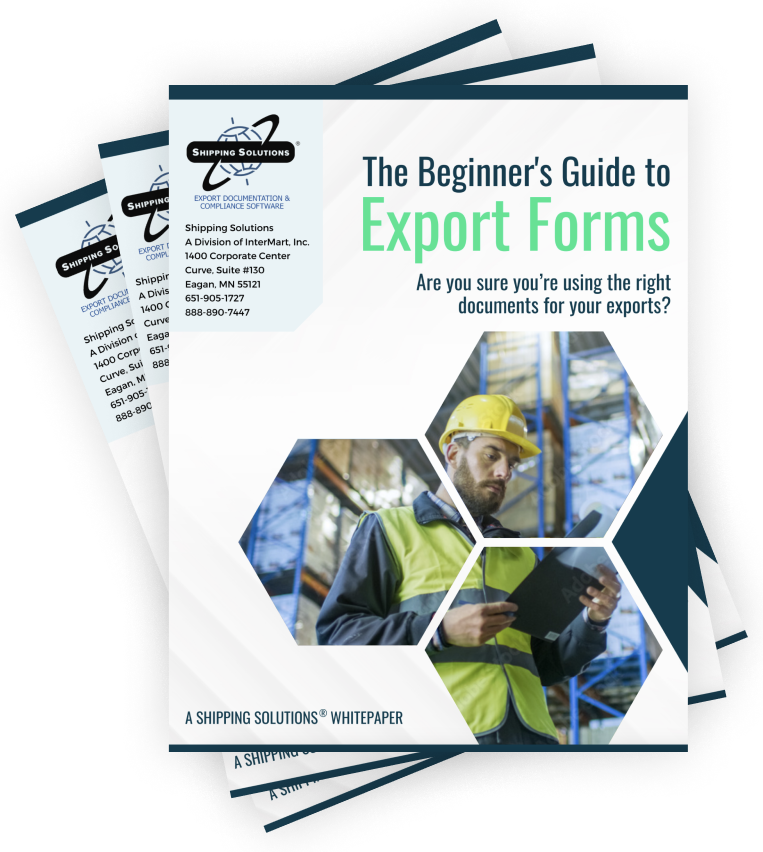The International Trade Blog International Sales & Marketing
4 Steps for Ensuring a Good Relationship with Your Freight Forwarder
On: April 26, 2017 | By:  David Noah |
4 min. read
David Noah |
4 min. read
 In the exporting world, building professional relationships is paramount to success. One of the key partnerships exporters have is with their freight forwarders.
In the exporting world, building professional relationships is paramount to success. One of the key partnerships exporters have is with their freight forwarders.
Tom Hullinger, president of Jordan Global Logistics in Orlando, Florida, has been involved in the logistics business since 1981. Below, he shares four tips for ensuring a good relationship with your freight forwarder.
1. Understand Your Compliance Responsibilities
The most important thing you can do to ensure a good relationship with your freight forwarding partners is understand export compliance. This is important to freight forwarders, because they share some of the liability issues with exporters.
Hullinger specifies these four things exporters need to know about compliance:
a) Properly classify what you’re shipping.
The first step in ensuring export compliance is determining if you need a license to ship the goods and who has jurisdiction over your goods.
b) Understand U.S. trade policies and regulations and how they relate to particular countries or entities.
In addition to knowing if your product needs an export license, you also need to understand red flags, deemed exports, and restricted party screening lists.
c) Understand proper requirements in labeling cargo.
Our series, The Art and Science of Packing a Shipping Container, walks through this process step by step.
d) Understand documentation requirements.
You need to know what paperwork needs to accompany your goods throughout the export process, and you also need to make sure it’s completed properly. The Beginner's Guide to Export Forms gives you all the details.
While reputable forwarders are always willing to help their customers, if exporters don’t have these things in place when they’re ready to ship, it will be problematic—forwarders tender shipment based on information exporters give.
Paying attention to export compliance is the biggest, most critical thing exporters can do to ensure a good relationship with freight forwarders. After all, nobody wants to get a letter from customs or a visit from the TSA saying they’ve violated rules and regulations.
2. Pay Freight Forwarders on Time
A good partnership with a freight forwarder hinges on a good credit relationship. The largest percentage of problems with exporting companies comes from delinquent payments. These companies stretch their payments out or don’t pay in the correct terms, which leads to problems for the freight forwarder, who now can’t pay their own vendors and creditors.
Freight forwarders don’t want to jeopardize paying their vendors or other customers they rely on, so when an export customer repeatedly pays late, they will break off the relationship.
3. Communicate Properly
Make sure you’re giving correct information to your freight forwarder. When a company asks a forwarder to collect and move a shipment, an exporter must understand that forwarders don’t have the cargo in the facility—they go to other locations to pick up goods, deliver the products, and ship them to their final destination. If forwarders don’t have correct information about these goods and their location, it causes major problems.
For example, Hullinger mentioned a customer who requested a pickup of large cargo. The customer gave the incorrect dimensions for the cargo—and the cargo ended up being six inches taller than he said. That six-inch difference meant the cargo couldn’t fit in the equipment booked for the shipment. Ultimately, the exporter had to pay extra fees to get additional deliveries set up, and it created twice the work versus getting proper, accurate information from the outset.
Freight forwarders depend on exporters for all the details—dimensions, weight, destination cities, airports, etc.—because they don’t have the means to check on goods that aren’t located in their facility. And after all, no one knows your product better than you do!
4. Properly Train Your Staff
Knowing packing and labeling requirements and then training your staff on those requirements is an important part of ensuring a good relationship with your forwarder. Forwarders get shipments on a daily basis, and if the warehouse receives something improperly labeled, they have to try to figure out who shipped it, where it’s coming from, and all pertinent information—which means you’re leaving the delivery of your goods to the interpretation of someone who doesn’t know them.
Making sure your entire team understands proper documentation procedures, including how to record accurate descriptions, weight, dimensions, and any other required information. Making sure you provide correct information for all shipments is crucial for the success of your company. Freight forwarders are reluctant to do business with export companies whose staff aren’t trained and don’t know proper procedures.
Additional Export Resources
By following these four steps, you can make sure your relationship with your freight forwarder is a productive, long-term success. In addition to your freight forwarder, there are a number of agencies and organizations that can help you make sure you’re doing everything you can to ensure a good relationship with all of your vendors.
U.S. Customs and Border Protection, the International Trade Administration, and the Bureau of Industry and Security all have excellent websites that provide information on regulatory responsibilities, documentation requirements, filing requirements, country requirements, and more. They also offer helpful tips and instructions on various aspects of exporting.

About the Author: David Noah
As president of Shipping Solutions, I've helped thousands of exporters more efficiently create accurate export documents and stay compliant with import-export regulations. Our Shipping Solutions software eliminates redundant data entry, which allows you to create your export paperwork up to five-times faster than using templates and reduces the chances of making the types of errors that could slow down your shipments and make it more difficult to get paid. I frequently write and speak on export documentation, regulations and compliance issues.


